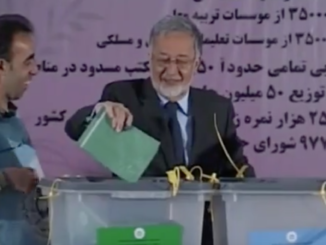
Sports have great potential for the promotion of inter-provincial harmony and national integration in Pakistan by strengthening the collective identity of the alienated segments of the society. Sports are a formidable force at the national level which positively contribute to the formation of national identity. Sports provide a medium for interaction and cultural exchange to the people of diverse regions and different cultural backgrounds for exchange of experiences which promote mutual understanding and strengthen sentiments of solidarity among them. National solidarity is the sense of unity and inclusiveness shared by diverse segments of a composed political entity. It is an important source of national integration as identified by Ibn-e-Khaldun in his work ‘Muqadamma’ which is a preface to his voluminous research on the science of history and society. Khaldun called it ‘Asabiyya’ which is a concept of social solidarity. This social solidarity gets strengthen in those societies where adequate social and economic justice mechanisms are provided for the welfare of masses.
Since its inception, Pakistan has faced the challenge of national integration due to the multiplicity of factors. Founder of Pakistan Quaid-e-Azam Muhammad Ali Jinnah envisioned Pakistan as a separate democratic homeland for Muslims to be run on principles of Islamic ideas of social justice and equality. Pakistan became a reality for the inhabitants of the Muslim-majority areas in the sub-continent in 1947. The theory of Muhammad Ali Jinnah and his Muslim League perceived the Muslims of India to be a distinct “Muslim Nation”, opposed to a “Hindu Nation” in the shape of “Two-Nation-Theory.” Pakistan inherited a wide variety of ethnic and linguistic groups and subgroups, which had very little in common besides being Muslim. Presence of national and diverse regional languages along with diverse ethnic identities constituted a heterogeneous state. The founding fathers hence had to make Pakistan into a “Nation“, to integrate the several ethnic groups into a national community – without over-emphasizing on the bondage (religion) they had in common. This challenge still exists which needs an innovative approach for its solution.
Pakistan is still facing challenges of national integration in the face of growing sentiments of ethno nationalism. Therefore, the need to promote Asabhiya through non-conflicting and apolitical ventures such as sports has vital significance for Pakistan. Pakistan is blessed with a diversity of people belonging to different cultures and regions. Thus, the government needs to play an instrumental role in promoting mutual understanding among people of different regions of Pakistan through the promotion of common sports among them. Organization of sports events and patronization of sports activities at the interprovincial levels can offer the best venue for it. Pakistan needs to expand its project of national integration from the ideological spectrum to the spheres of social and economic justice.
Sports can be a mechanism for the provision of social and economic justice to deprived classes to address their grievances. Ministries of Sports at the national and provincial level need to formulate a national sports engagement framework for the organization of sports activities across the country. This will promote positive competition and heathy activity among people of Pakistan as well as encourage youth for involvement in sports. According to economic survey of Pakistan 2019-20, Pakistan’s 64% population falls under the category of youth. This youth bulge is a blessing, as well as a challenge for Pakistan, depends on the management of this resource by the government. Government of Pakistan needs to make a timely intervention to effectively channelize this potential as a demographic dividend. Sports have played a crucial role in the development of societies since time immemorial.
Cricket is the most celebrated sport in Pakistan. This is also the most lucrative sport in the country as the state provides consistent patronization to this sport in the form of Pakistan cricket Board (PCB). Hockey is the national support of Pakistan but it lacks patronization at the national level. The fate of football is gloomier as compared to Hockey. This is the condition of national outdoor sports. Indoor sports are not sufficiently encouraged and promoted at the state level which manifests from the lack of participation of national teams in the international events of indoor games. The situation for regional supports is also deplorable which demands great attention from national and provincial governments.
Federal and provincial governments need to promote regional supports as a public engagement tool in the respective domains of different sports. This will attract mass participation in regional sports activities. Resource constraint is another major factor in the lacklustre performance of national and provincial governments. The country’s sports sector got a meagre share in the Federal Budget 2020-21 as only two new schemes worth Rs 595 million that are related to preparation and holding of South Asian Games have been made part of the budgetary documents. Governments need to allocate more funds for the promotion of sports activities in the backward areas of KP, Gilgit Baltistan, AJK, Sindh and Baluchistan for the involvement of youth in sports.
The youth of these regions consider development in Punjab at the cost of consumption their resources which creates irritants in interprovincial coordination and discord national integration efforts. If these opportunities are not provided to the already alienated people of these economically deprived areas for national inclusion than it can push them toward extremism and anti-state activities. Therefore, critical infrastructure and transparency in opportunities required for sports activities in these peripheral areas must be provided to the indigenous of these regions because ensuring provision of social and economic Justice can only create dividends for national integration in Pakistan in its true sense.
![]()





Be the first to comment